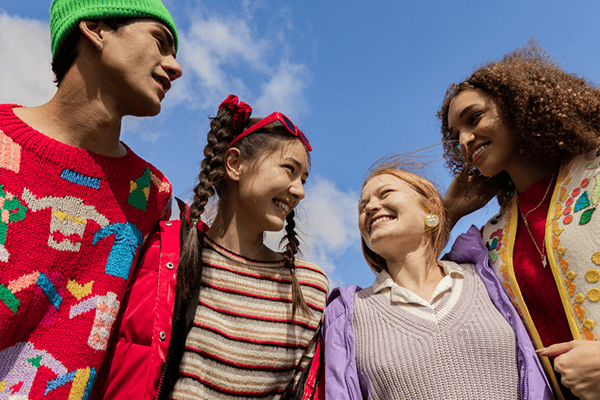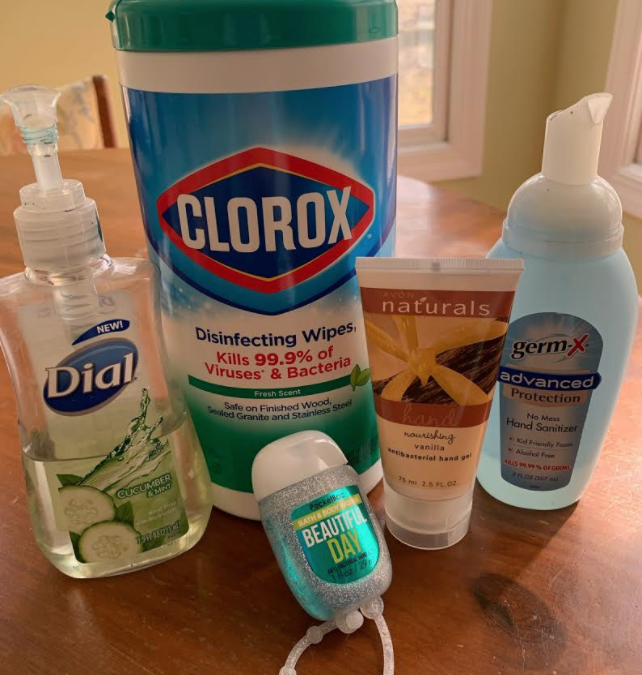
Let me start by saying by the time I write this and it gets proofread and posted, it already will be out of date. Every aspect of the COVID-19 coronavirus disease – scientists’ understanding of it, the number of confirmed cases around the globe, recommendations from the Centers for Disease Control, the impact on our local communities and personal lives – continues to change by the hour. Scary times, indeed.
As foster parents, how are we handling it? What is expected of us during these unprecedented times? How can we keep our kids safe? Ourselves? Our parents and grandparents? Our pregnant friends and older neighbors?
I’m as attached to social media as I assume the rest of you are, and the information is overwhelming. How do we trust what we’re reading? On a good day, it is challenging to put faith in our state and country’s leaders and hope they are making the best decisions for us. Now more than ever, faith is what’s required, along with a whole lot of personal precautions and decisions about where your family should draw the line for social distancing.
(Looking for guidance? A simple online search will confuse you further with dozens of different and ever-changing guidelines.) Limiting gatherings to 100 people changed to 50 people, and now it’s down to 10 … in a matter of hours.
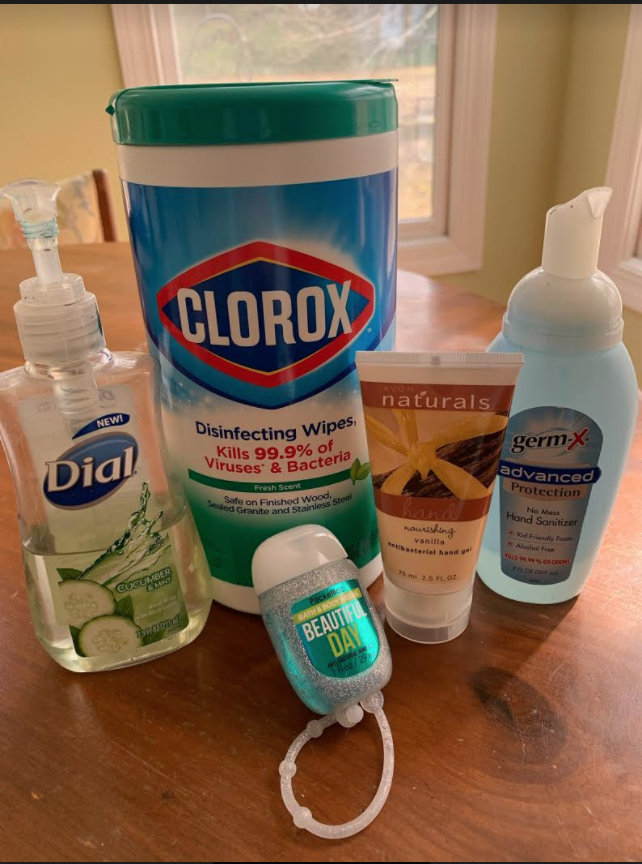
This morning I read that the ‘older population was called to fight in wars to protect us, the least we can do is sit on our couches for a few weeks to protect them.’ Wow, that’s some great perspective. Many foster parents are young and healthy, yet many are high-risk or are caring for high-risk children. COVID-19 doesn’t just target the elderly, although they are among those most seriously in danger.
Several days ago (at least I think it was several days, but who can keep track right now?) I told a friend that it’s going to take each of us being personally impacted to really take social distancing seriously. And in such a short time it has hit me much closer to home: a friend who lives a mile away texted that she has a friend who tested positive; also yesterday my home county saw its first death from coronavirus. It suddenly got real, real fast.
How do I tell my already worried 11-year-old about the seriousness without increasing her anxiety? She is devastated that her usual activities are cancelled. She is *nearly* as extroverted as I am, and social distancing requires focused restraint and discipline for us – social media and FaceTime with friends just isn’t the same. How do I explain that shutting down schools and restaurants and parks and sports and church has never happened in my lifetime of 50 years? How do I keep her busy and distracted (without constant use of technology) until distance learning begins for our school district?
How will we ever properly thank healthcare workers who report each day knowing they will be exposed to patients who have tested positive? How will we ever thank teachers who are currently expected to perform miracles in an extremely short period of time? How will they ever reach the students who don’t have internet access at home and are unable to complete their schoolwork? How will children who rely on school meals get the nutrition they need?
So many questions without answers. And if we find an answer, it is sure to change before the next sunrise.
Foster parents face even more difficult challenges as we feel unable to control potential germ sharing: we continue to send our kids to parental visits, and we allow therapists, Guardian Ad Litems and case managers into our homes. We are stressed over delays in court hearings related to reunifications, adoptions, TPRs and other essential decisions that impact the duration kids will spend in limbo. Some foster families, including mine, are facing relicensing deadlines within the next few weeks; we are uncertain if the fire marshal inspection will happen in time, and where we’ll finish up training hours since all in-person training is cancelled for the foreseeable future.
Let’s take this opportunity to give thanks for the access we have to up-to-date information. Imagine experiencing these trying times without internet access!
The thought of being home with my children for the next month is scary (please forgive my sarcasm during serious times, but we gotta keep it real and laugh to keep from crying). A friend recently (and lovingly) told me “your privilege is showing,” and she is absolutely right. I’ve spent two years feeling extremely blessed to be able to stay at home while fostering our littles, but never more grateful than this month. So many parents are struggling to find care for their kids while they must report to work (yikes!). Others are struggling to work from home while caring for their kids (yowza!). Some are running low on food and formula so they must stretch thin resources even thinner (heartbreaking!). Others must send their kids to daycares that remain open with prayers that they aren’t picking up germs (how?!?). Perhaps those struggling the most are those who have already lost their jobs yet face bills that must be paid (impossible!).
What is truly terrifying are the long-term effects that we can’t even comprehend yet. Family court was already backlogged and bottlenecked – how long will it take us to catch up after the closings? Family budgets were already tight, and now so many people are out of work either temporarily or permanently. Small business owners were struggling and are now forced to either close, or stay open without steady customers. Teachers were already cramming a lot of instruction into the school year, and now they must teach it quicker and through online capabilities.
How do we keep our cool and find the facts and make the best decisions for our families? That’s the 20th question I’ve asked so far (yep, I counted), and now I offer some suggestions, beginning with a famous quote from Mr. Rogers about looking for the helpers.
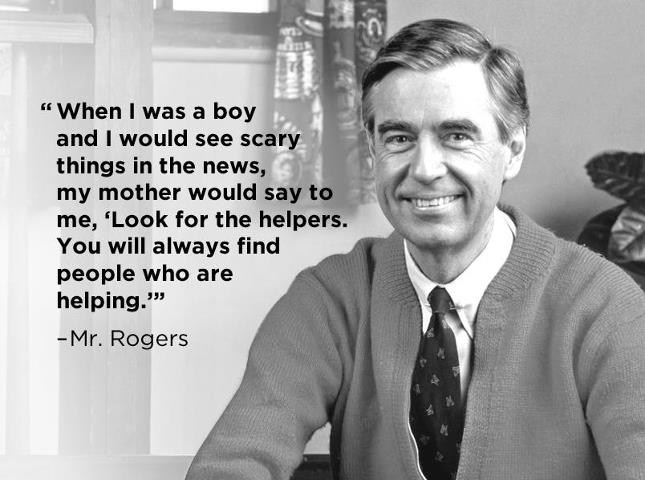
Teachers are some of the most patient and resourceful people I know. They will meet our kids educational needs, despite COVID-19. Many of my teacher friends are posting their area of expertise with offers to help kids struggling with online learning. Physicians, nurses and other healthcare workers are among the most knowledgeable and caring people I know. They are working around the clock to keep us informed and safe and do their best to care for those infected. School officials are working out ways to get meals to children who need them. Some websites that rely on paid subscriptions are offering their services for free. Grocers and other stores are doing their best to restock shelves and increase cleaning protocols.
In the meantime, as parents we must:
- Talk to our kids about what’s happening (again, a quick online search will give you plenty of ideas) and explain ways kids can stay safe.
- Monitor our own mental health – coronavirus hit after several months without adequate sunshine so already I didn’t start this leg of the journey with my best foot forward. Need to hide in the pantry while scarfing down chocolate? Go for it!
- Take social distancing seriously for the sake of strangers as well as loved ones.
- Protect your home.
- Show grace to others in our community and offer help wherever we can. For example, we brought care packages to a foster family that has sick kids.
- Have faith in our leaders and health experts, following their guidelines for safety, no matter how inconvenient.
- Remember the power of laughter and the joy that finds us during quiet moments.
- Be patient with ourselves and acknowledge the limitations to our own (super)powers. Just breathe.
- And I would be remiss without saying it, we MUST keep washing our hands frequently and thoroughly.
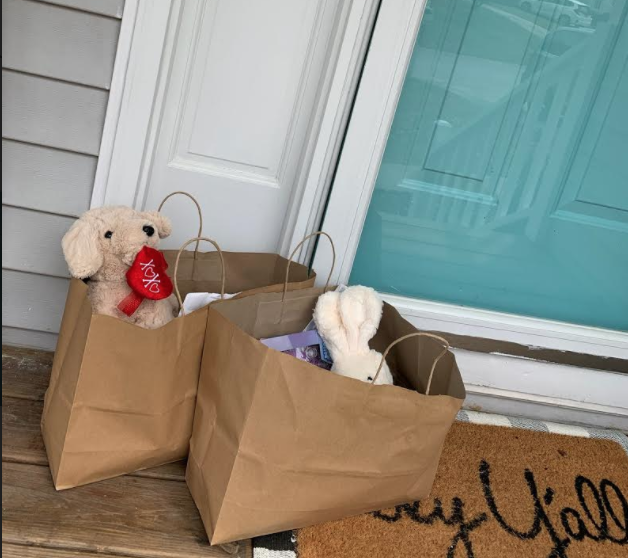
Foster parents are some of the most flexible and resilient people I know. We will prevail for these kids under our care. Simply put, we don’t know how to do anything less. We are all in this together and, together, we’ll wash our hands obsessively and make it through to the other side of these unprecedented and uncertain times, one hour at a time. Stay strong, friends.
For more information about how foster parents should respond to the coronavirus and COVID-19, please talk to your agency/ Family Support Specialist and follow state child welfare guidelines. You can also learn more about recommendations from the National Foster Parent Association about the role you play in keeping children healthy and safe.

